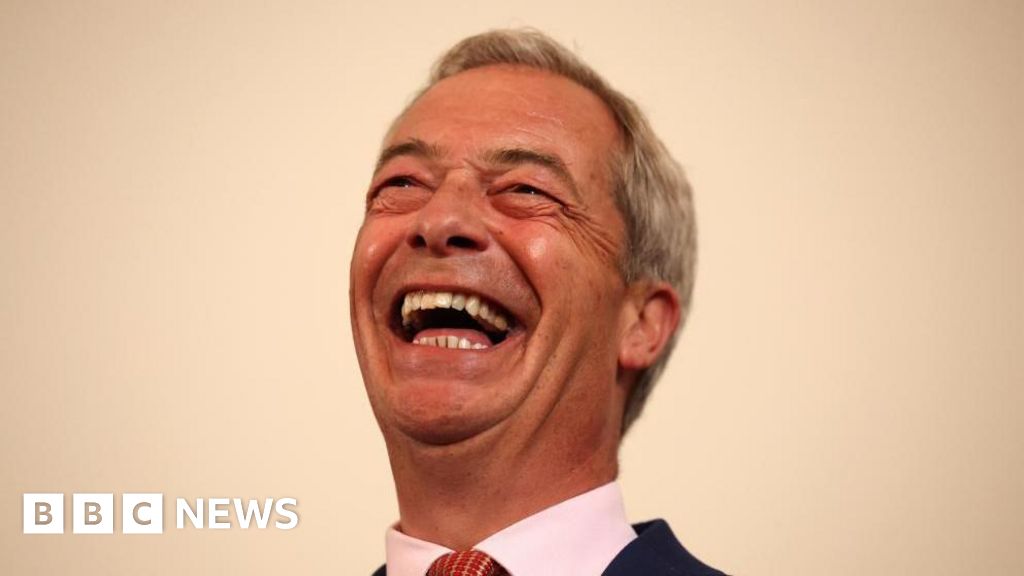For the first time, a single opinion poll shaped a day on the campaign trail.
A poll from YouGov suggested Reform UK had overtaken the Conservatives for the first time.
It is worth reflecting on that for a moment: one of the most successful political parties in the Western world and the current party of UK government, being outpolled by a party barely a few years old.
But hang on a minute: polls that make news deserve scepticism, because the most eye-catching polls are usually the outliers – and it is the trend in opinion polls that is key.
It is that trend, in my judgement, that made this moment noteworthy, though, because Reform UK have seen their polling numbers improve throughout this campaign so far.
You can read Professor John Curtice’s analysis of the polls here.
But, Nigel Farage has had false dawns before.
The First Past the Post voting system at Westminster means parties need geographically concentrated pockets of support to win seats.
Moderate support in lots of places can mean stacking up a lot of votes and getting next to no seats.
Mr Farage reckons six million votes are possible this time, maybe more.
His influence after the election will depend on four things, in this order:
- Does he win a seat at Westminster?
- How poorly do the Conservatives do?
- How many seats do Reform UK win?
- And how many votes do they get in total?
In a scenario where the Tories do very badly indeed, he wins a seat and so do some other Reform candidates, his capacity to help shape the future of the Right could be very significant.
But it is also possible, as one senior Conservative suggested in a text exchange I had earlier, that this is a “Farage honeymoon”.
And it is possible too that at least some of the many, many folk who are telling Conservative canvassers on the doorstep that they don’t know how they will vote may plump for the Tories in the end.
At Nigel Farage’s latest news conference, the Reform UK leader stood behind a battered old lectern.
The party logo was a print out on A4 paper sticky taped to it in the nick of time.
It was a reminder that Nigel Farage’s latest party is an upstart outfit, short of money and short of time.
He admits his team aren’t nearly as ready as they would like to be.
He adds that the Liberal Democrats – also up in the polls in the first three weeks of this campaign – have a far more impressive campaigning machine than they do.
But there’s no shortage of ambition, chutzpah or appetite to provoke dizzying discombobulation among Conservatives.
Mr Farage believes the Conservative Party is world weary, divided and clapped out.
So he can frighten the life out of at least some of them and let questions swirl about whether he wants to overtake them, take them over, or finish them off.
That’s a soap opera to come, maybe, if he manages to make it to the Commons.
For now, though, all this means many Tories zoom from gloom to doom, their grinning tormentor showing them no mercy this time.

William Turner is a seasoned U.K. correspondent with a deep understanding of domestic affairs. With a passion for British politics and culture, he provides insightful analysis and comprehensive coverage of events within the United Kingdom.








